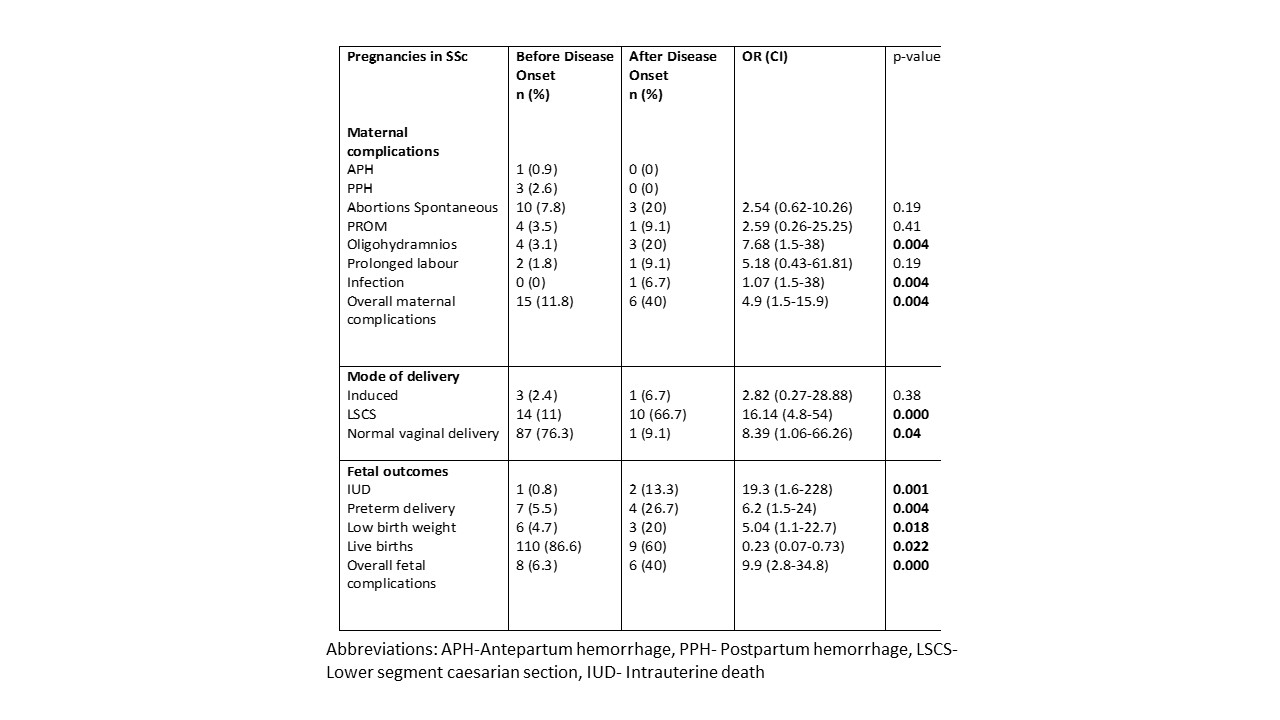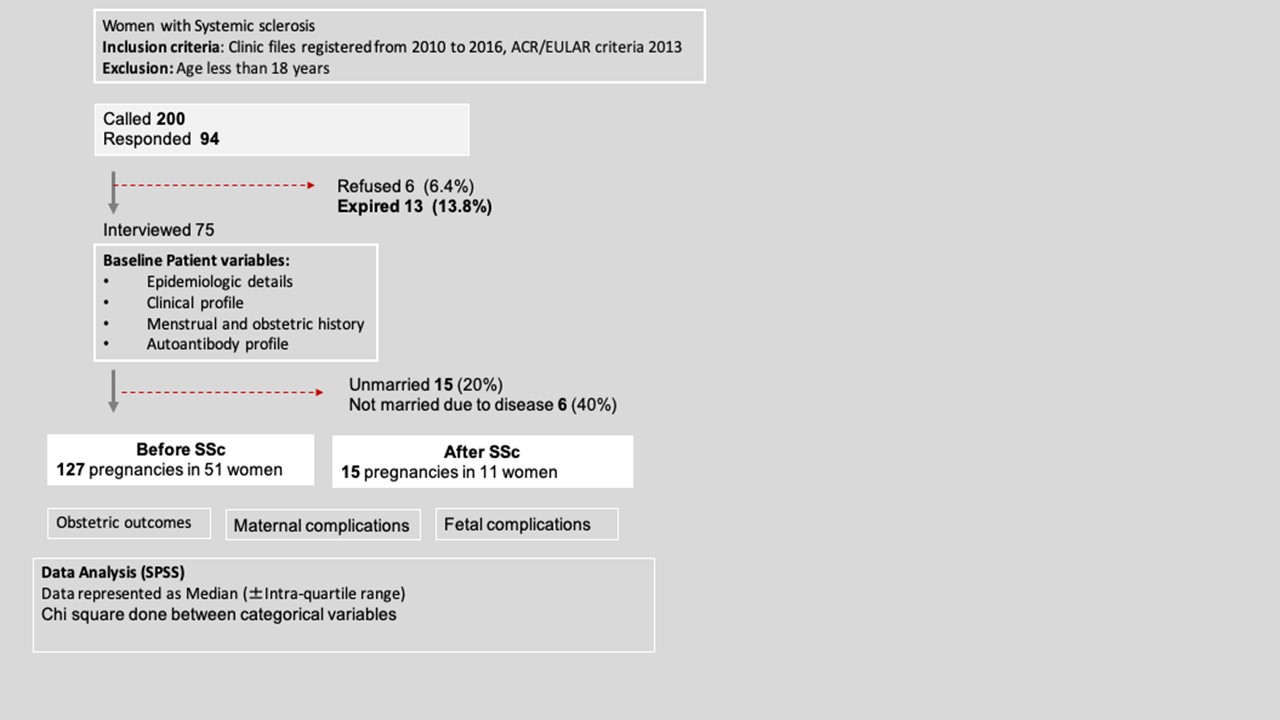Session Information
Session Type: Poster Session C
Session Time: 9:00AM-11:00AM
Background/Purpose: Poor obstetric outcomes have been described in Systemic sclerosis (SSc) in the developed world. We assessed effect of the disease in Indian women and compared with world literature.
Methods: Women with SSc ( >18 years, ACR/EULAR 2013 criteria)1 registered at a tertiary care centre from 2010-2016 were contacted over the telephone. Apart from demographics, disease related features, obstetric history and social issues were recorded (Figure 1).
Results: Of 200 women, 94 (47%) could be contacted, 13 (of 94, 13.8%) deaths were recorded, and 75 (79.8%) agreed for an interview (baseline characteristics Table 1). Median age at diagnosis was 31 (22-38) years. Diffuse SSc was more common (56%).
127 conceptions before SSc were compared with 15 after the disease (Figure 2) to yield a higher odd of maternal [OR: 4.9] and foetal [OR: 9.9] complications, and low chances of a live births [OR: 0.23]. Pregnancies after SSc had higher spontaneous abortion, premature rupture of membrane (PROM), prolonged labor, oligohydramnios, maternal infection and intrauterine death (IUD), preterm delivery, low birth weight (LBW) (Table 1)]. Greater (66.7% vs 52%)2 caesarean deliveries were recorded after disease onset. Social issues were reported by 12 (16%).
As compared to SSc in developed countries,2,3,4 we found a similar caesarean (two-third) and preterm deliveries (one-fourth), whereas abortion rate was six times higher (26.6% vs 4%) and LBW was 20%, which was 1.5 times higher compared to IMPRESS cohort.2
Conclusion: SSc incurs high mortality, poor obstetric outcomes, greater maternal and foetal complications, and low birth weight in addition to social issues. The outcomes are worse in a low-middle income country than previously described from the developed world.
 Figure 2: Maternal and fetal complications in Systemic sclerosis
Figure 2: Maternal and fetal complications in Systemic sclerosis
 Table 1: Comparison of Obstetric outcomes before and after onset of Systemic sclerosis
Table 1: Comparison of Obstetric outcomes before and after onset of Systemic sclerosis
To cite this abstract in AMA style:
Kharbanda R, R N, Misra D, Gupta L, Agarwal V. Poor Maternal and Fetal Outcome in Indian Women with Systemic Sclerosis: Interview-based Study at a Tertiary Center in India [abstract]. Arthritis Rheumatol. 2020; 72 (suppl 10). https://acrabstracts.org/abstract/poor-maternal-and-fetal-outcome-in-indian-women-with-systemic-sclerosis-interview-based-study-at-a-tertiary-center-in-india/. Accessed .« Back to ACR Convergence 2020
ACR Meeting Abstracts - https://acrabstracts.org/abstract/poor-maternal-and-fetal-outcome-in-indian-women-with-systemic-sclerosis-interview-based-study-at-a-tertiary-center-in-india/

